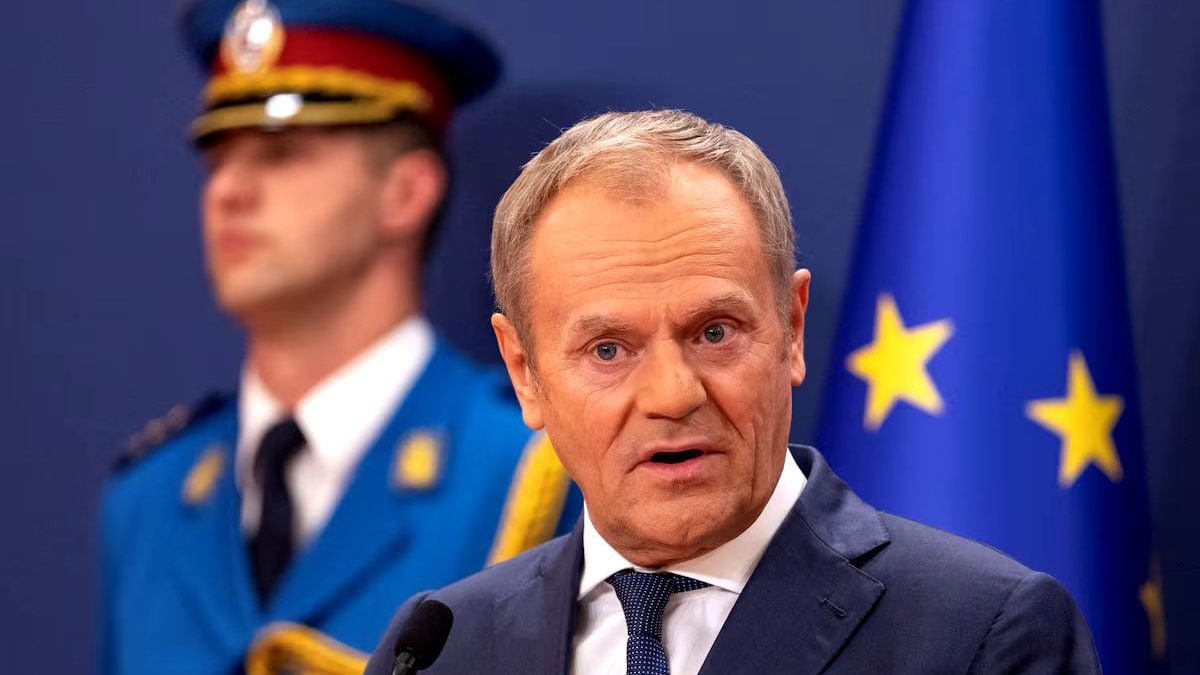The proposal from Tusk came a year after the Polish government said that the country’s military encompassed about 200,000 soldiers and was to grow to 220,000 this year to increase it to about 300,000read more
Poland’s Prime Minister
Donald Tusk said that his government is working on a plan to prepare large-scale military training for every adult male in the country amid changing security situation in Europe. Tusk said that there is need of an army of 500,000 soldiers, which would include reservists.
“We will try to have a model ready by the end of this year so that every adult male in Poland is trained in the event of war so that this reserve is really comparable and adequate to potential threats,” Tusk said in a major speech on security to the country’s Sejm, the lower house of parliament, on Friday. The proposal from Tusk came a year after the Polish government said that the country’s military encompassed about 200,000 soldiers and was to grow to 220,000 this year to increase it to about 300,000.
However, the Tusk administration is planning to accelerate the effort as
Russia continues to pound Ukraine and Washington under US President Donald Trump stopped providing
intelligence to Kyiv, putting pressure on European nations. “Today we are talking about the need for a half-million army in Poland,” Tusk said in the parliament.
Poland to follow something similar to Switzerland.
Following his address, the Polish premier told reporters that he was not considering a return to universal military service but rather a reserve system based on the model in Switzerland. In Bern, every man is obliged to serve in the military or an alternative civilian service, while women can volunteer if they choose.
On Friday, Tusk also suggested that Poland should explore nuclear possibilities. “We must be aware that Poland must reach for the most modern possibilities, also related to nuclear weapons and modern unconventional weapons,” he said. The remarks from the Polish prime minister came after he backed withdrawing from a landmark treaty prohibiting the use of anti-personnel landmines, the Ottawa Convention, as well as potentially from the Dublin Convention, which bans the use of cluster munitions.
Apart from Poland, at least two other
NATO member nations, Finland and Lithuania, have mulled exiting the Ottawa convention recently. “Let’s face it: it’s not something nice, nothing pleasant. We know that very well,” Tusk said. “The problem is that in our environment, those we may be afraid of, or those who are at war, they all have it.”
Even the opposition agrees
Jaroslaw Kaczyński, the head of Poland’s largest opposition party, the conservative Law and Justice, said that in addition to this initiative, a mental shift in society would also be needed in addition to the military training of men, The Guardian reported. “We will have a return to the chivalric ethos and to the fact that men should also be soldiers – that is, be able to expose themselves even to death,” Kaczyński said.
Tusk emphasised that if Ukraine lost the war to Russia,
Poland could be the next target of Russian President Vladimir Putin. “If Ukraine loses the war or if it accepts the terms of peace, armistice or capitulation in such a way that weakens its sovereignty and makes it easier for [Russian president Vladimir] Putin to gain control over Ukraine, then, without a doubt – and we can all agree on that – Poland will find itself in a much more difficult geopolitical situation,” Tusk said.
Meanwhile, on Friday, Polish President
Andrzej Duda said he was submitting an amendment to the Polish constitution, which would oblige the country to spend at least 4 per cent of its GDP on defence each year. It is pertinent to note that
Poland already spends a higher proportion of GDP on defence than any other Nato member state, including the United States.
Last year, the eastern European nation’s defence spending reached 4.1 per cent of GDP, according to Nato estimates, and it plans to hit 4.7 per cent this year. Duda said he wants to take advantage of the consensus in the current Polish political landscape regarding security of the country.
With inputs from agencies.
